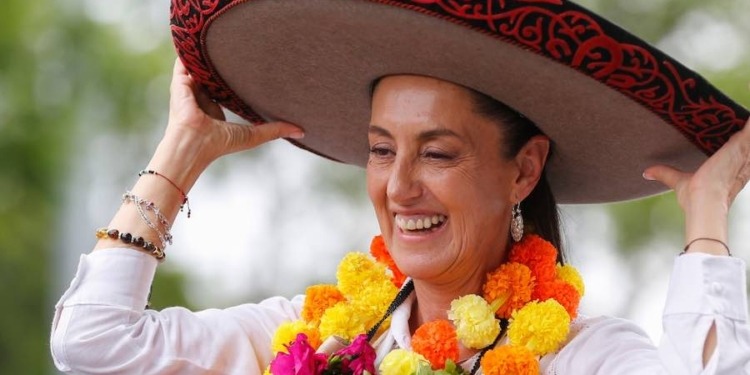Sheinbaum served as Mexico City’s mayor from 2018 to 2023, before stepping down to run in the presidential election in 2024 as a candidate for the National Regeneration Movement (Movimiento Regeneración Nacional; MORENA). She is known for her scientific research and policy advocacy on matters of energy efficiency, sustainability, and the environment. She was one of the scientists and policymakers who shared the 2007 Nobel Prize for Peace for their work on the United Nations Intergovernmental Panel on Climate Change (IPCC).
Early life and education
Sheinbaum is the second daughter of Annie Pardo Cemo, a biologist and professor emeritus at the National Autonomous University of Mexico (UNAM) in Mexico City, and Carlos Sheinbaum, a chemical engineer. After spending her childhood in Mexico City, Sheinbaum enrolled at UNAM to study physics. For her master’s and doctorate degrees (also at UNAM), she studied energy engineering and conducted her doctoral research at Lawrence Berkeley National Laboratory in Berkeley, California, U.S. Her dissertation compared trends in energy consumption in Mexico with those of other industrialized countries. Sheinbaum returned to UNAM as a member of the engineering faculty in 1995.
Political activism
Sheinbaum was politically active as a student and professor in the 1980s and ’90s. Although she helped found the student-led Revolutionary Democratic Party in 1998, she wouldn’t hold office until the turn of the 21st century. In 2000 she was appointed Mexico City’s environmental minister by Mayor Andrés Manuel López Obrador, with whom she shares strong political ties. In the role, she oversaw the introduction of the city’s bus system, Metrobus, and the construction of a second story of the Periférico, a beltway road that encircles Mexico City’s urban zone. After López Obrador lost his bid to become Mexico’s president in the 2006 election, Sheinbaum returned to UNAM, where she contributed to the climate change mitigation section of the IPCC’s fourth and fifth assessment reports (see also global warming policy) and continued her scientific research. The IPCC was awarded a Nobel Peace Prize following the fourth assessment’s publication in 2007.
In 2015 Sheinbaum was elected mayor of the Tlalpan district of Mexico City. In this role, she stressed the importance of water rights and fair usage. Although she received criticism for accidents occurring in the infrastructure she oversaw during her term of office, including several deaths that occurred during a magnitude-7.1 earthquake that struck Tlalpan in 2017, Sheinbaum’s political stock continued to rise. She was elected mayor of Mexico City in July 2018, receiving 50 percent of the vote in a field of seven candidates. As in her earlier positions, Sheinbaum took on public transit and environmental issues. Her government expanded rainwater collection, reformed waste management, and began a reforestation program. She also announced plans to overhaul the city’s subway system—long in disrepair—with massive investments in modernizing trains and shoring up existing infrastructure. However, her critics have pointed to continued deadly accidents on the subway despite her attempted reforms






























Discussion about this post